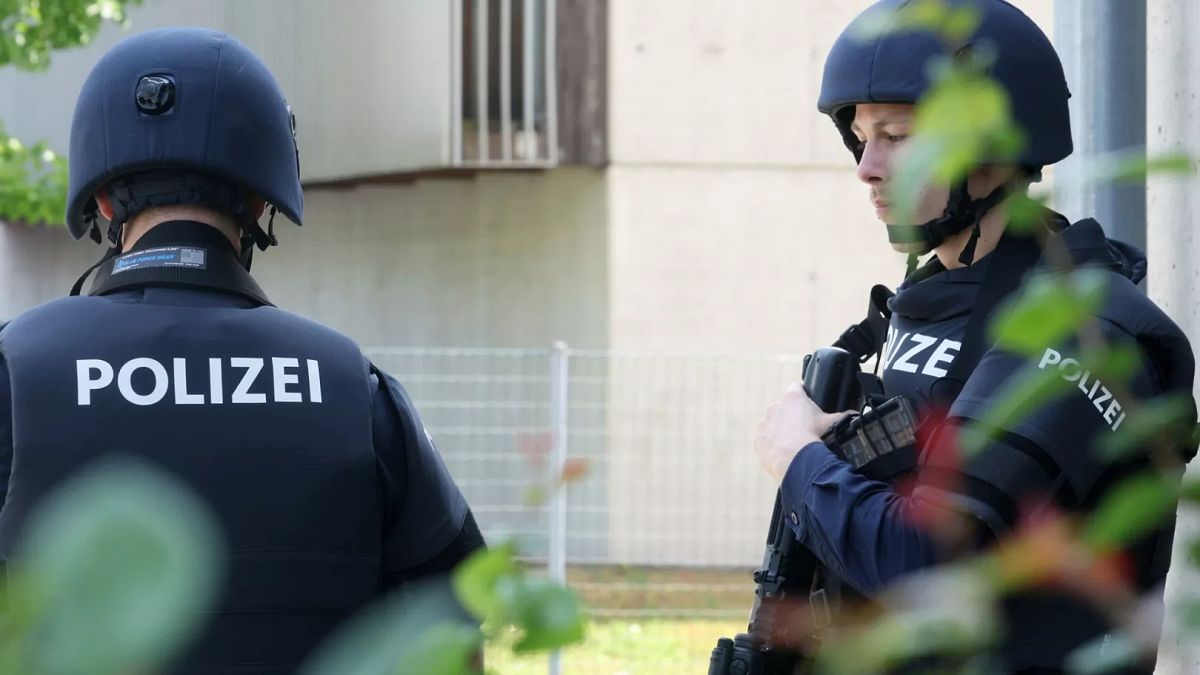Austria is observing three days of national mourning for 10 people killed after a gunman attacked a high school in the southern city of Graz.
The incident in Austria’s second-largest city of some 300,000 was the deadliest mass shooting in the Alpine country’s recent history.
Police are investigating why the gunman, identified by authorities as a former student at the school who failed to graduate, may have carried out the attack.
The perpetrator, identified by Austrian media as “Artur A”, had no prior criminal record. He reportedly took his own life in the school bathroom after carrying out the attack.
During a search of the alleged perpetrator’s house, the police found plans for an explosive attack as well as a non-functioning pipe bomb.
They also found a digital and handwritten suicide note addressed to the perpetrator’s parents.
“No motive can be taken from the farewell letter so far,” Director of Public Security Franz Ruf told public broadcaster ORF on Tuesday evening. Local media speculated that years of bullying may have been a possible motive for the massacre.
By Wednesday morning, the authority that runs hospitals in Graz said that all patients were in stable condition.
Nine were still in intensive care units, with one needing a further operation on a facial wound and a second on a knee injury, while another two had been moved to regular wards.
Local media report that the 21-year-old lived with his mother. A neighbour told OE24 that “he was completely introverted.”
Shooter owned two weapons
The suspected gunman was in possession of two firearms which were seized by police after the attack.
He had legally acquired both weapons and had reportedly passed the psychological evaluation required in Austria to obtain a so-called “Category B” firearm possession card.
In Austria, weapons are traditionally carried for hunting rather than for self-defence. Some weapons, such as rifles and shotguns, can be purchased from the age of 18 without a permit.
Other weapons, such as repeating shotguns or semi-automatic firearms, are more difficult to acquire — buyers need a gun ownership card and a firearms pass.
The rare shooting, which has led to an outpouring of grief and shock in Austria, is likely to prompt a domestic debate over whether arms should be restricted, which has more liberal gun laws and high private gun ownership relative to the rest of Europe.
The mayor of the city of Graz, Elke Kahr, has already called for a complete ban on private weapons. Gun licenses are “issued too quickly,” she said in the aftermath of the tragedy.
The case would be examined and gaps would be closed, Ruf said. The perpetrator was not allowed to carry the weapons outside of his home, he added.
Local media speculated that the school was unprepared for an attack of this scale, given that school shootings are rare in Austria. Director of Public Security Franz Ruf stated that investigations will be launched to explore how schools can better implement preventive and protective measures to avoid similar tragedies in the future.
Austrian Chancellor Christian Stocker called the tragedy “incomprehensible”.
“Schools must remain places of peace – places where children can grow and learn,” he said.
The government added that numerous crisis intervention teams have been set up to support the victims and their families, including a hotline for those affected.
“The school must be a safe place for everyone, where students can develop. Everyone who needs help after today’s crime should get help,” Education Minister Christoph Wiederkehr said.
Additional sources • AP

